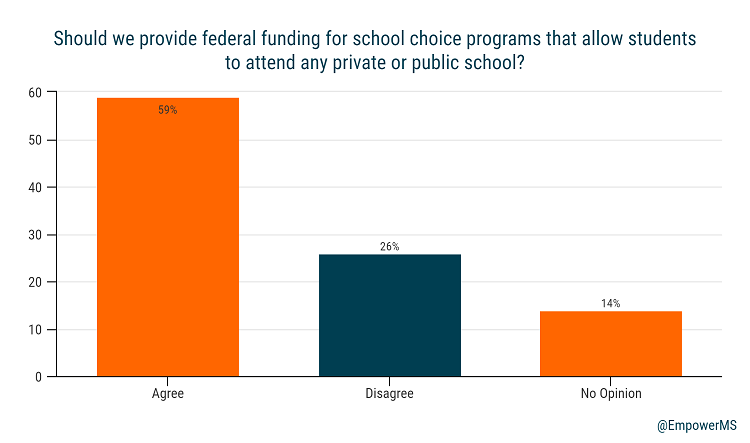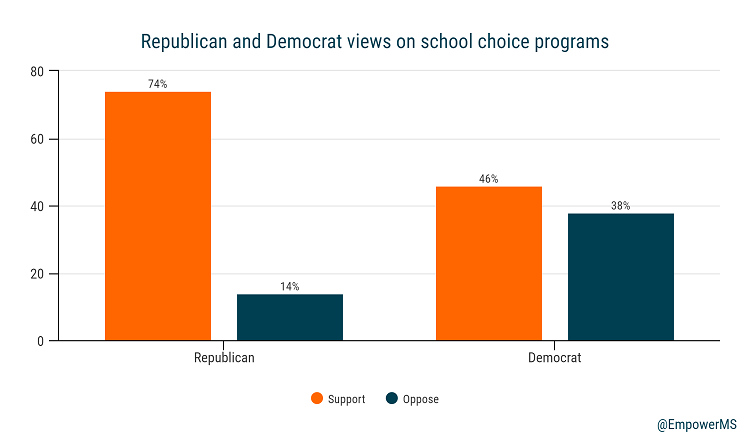New Poll Shows Bipartisan Support For School Choice


A strong majority of Americans support federal funding for a school choice program.
According to a poll released by Gallup this week, 59 percent agree with a proposal that would provide federal funding for a school choice program that allows students to attend any private or public school. Just 26 percent, or only one-in-four Americans, disagreed.
School choice is wildly popular among Republicans, with 74 percent in support compared to just 14 percent opposed. But even a plurality of Democrats- 46 to 38- would support such a program.

Both on the campaign trail, and since being inaugurated, President Donald Trump has made school choice a central issue for his administration.
During his first address to a joint chamber of Congress, President Donald Trump called education “the civil rights issue of our time” and pushed for Congress to pass school choice legislation.
“I am calling upon members of both parties to pass an education bill that funds school choice for disadvantaged youth, including millions of African-American and Latino children. These families should be free to choose the public, private, charter, magnet, religious or home school that is right for them.”
While education is largely a state issue, several important school choice proposals have been introduced in Congress. Many of these same bills have been introduced in the past, but stand a much better chance of passage today.
This includes:
- The CHOICE Act: Sen. Tim Scott (R-SC) has reintroduced the Creating Hope and Opportunity for Individuals and Communities through Education Act, which would provide school choice options for students with disabilities and military families. The proposal would enable states that already run disability school choice programs, as Mississippi does, to expand educational options for children with special needs with federal dollars. It would also create a pilot program under the Department of Defense on at least five bases to provide scholarships of $8,000-$12,000to students in military families.
- Title I Portability: Rep. Luke Messer (R-IN) has reintroduced legislation, the Enhancing Educational Opportunities for All Students Act, which would give states the option to allow $14.5 billion in Title I federal money to follow low-income children to the public or private school of their choice. The proposal would also expand 529 college savings accounts to K-12 education and eliminate the $2,000 cap on Coverdell education savings accounts.
- 529 College Savings Expansion: A proposal from Rep. Patrick McHenry (R-NC) would expand 529 college savings accounts to cover K-12 education. It would also increase the limit on contribution to Coverdell accounts, which can be used for K-12 education expenses, to $12,000.
- Federal Tax Credit: Sen. Marco Rubio (R-FL) has reintroduced legislation that would create a federal tax credit for individuals who contribute to a state tax-credit scholarship program. At the state level, 17 states currently have tax credit scholarship programs. Mississippi would need to create a program to participate in this program.
- Native American Education Opportunity Act: Introduced last year by Sen. John McCain (R-AZ), and very likely to return, this would allow students living on Indian reservations to receive an ESA if their home state has an ESA in place. This includes Mississippi, which currently has eight Bureau of Indian Education schools across three counties in the east-central part of the state.
To stay connected with what is happening in Jackson and up to date with the school choice and education reform movement in Mississippi, Join The Movement today.
